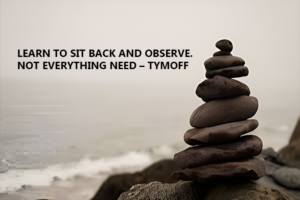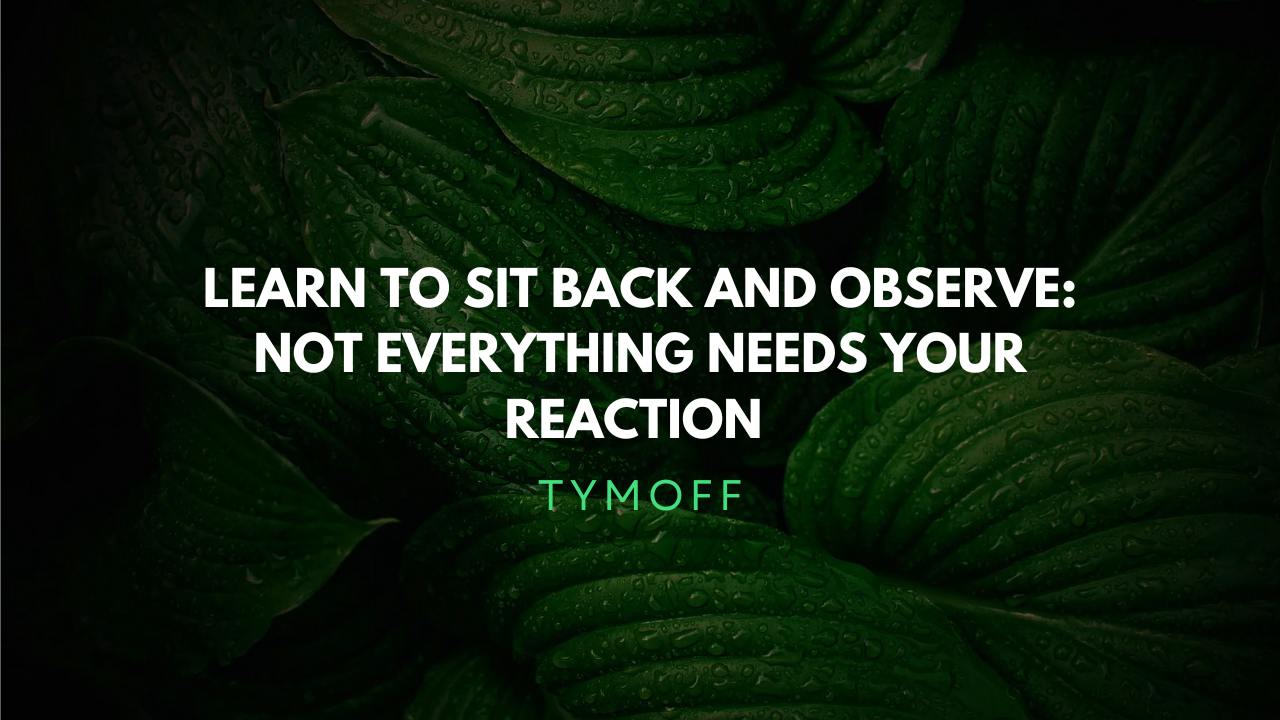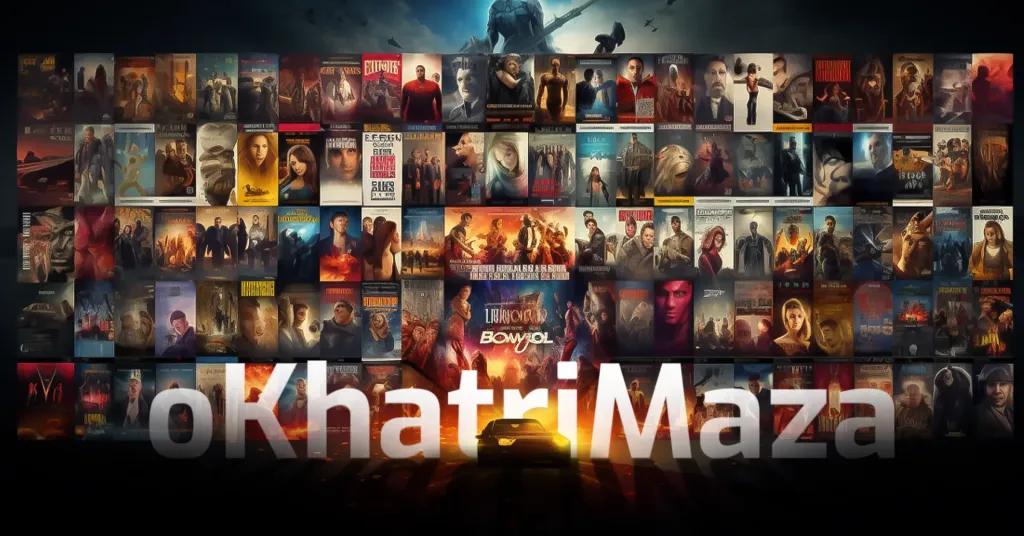In a world that constantly demands action, where productivity is often seen as the highest virtue, Learn to sit back and observe. not everything need – tymoff is a powerful skill that is often overlooked. The idea of simply observing instead of reacting or intervening can seem counterintuitive, but it holds profound wisdom that can enhance your decision-making, relationships, and overall well-being.
The Importance of Observation
At the heart of the concept of Learn to sit back and observe. not everything need – tymoff is mindfulness. It’s the practice of being fully present and aware of what’s happening around you, without feeling the need to constantly respond or control every situation. By allowing yourself to simply observe, you create space for reflection, insight, and understanding. This ability helps you avoid rushing into decisions or making impulsive judgments, which can often lead to regret or unnecessary conflict.
When you observe rather than react, you’re able to gain a broader perspective on the situation. You can analyze the dynamics at play and wait for the right moment to take action, instead of being driven by knee-jerk reactions. This can lead to better, more thoughtful outcomes in both personal and professional contexts.
Reducing Stress and Overwhelm
Constantly feeling the need to engage with every situation or conversation can leave you feeling overwhelmed. In today’s fast-paced, information-overloaded world, it’s easy to become exhausted by the demands placed on us. Learn to sit back and observe. not everything need – tymoff is a reminder that it’s okay to step back and prioritize your energy.
By choosing not to get involved in every detail, you can conserve your mental and emotional resources. This not only reduces stress but also allows you to focus on what truly matters. Sometimes, letting things unfold naturally without intervention can lead to unexpected solutions or insights that might have been missed if you were too quick to act.
Enhancing Relationships
In interpersonal relationships, the practice of observing can be particularly powerful. Often, we feel the urge to offer advice, offer solutions, or fix problems for others. Learn to sit back and observe. not everything need – tymoff However, sometimes, what people need most is simply someone who listens and understands. By sitting back and observing, you give people the space to express themselves fully, and in turn, you may learn more about their needs and emotions.
This non-intrusive approach can deepen trust and connection with others. It shows that you value them enough to allow them to figure things out on their own, rather than imposing your opinions or solutions. In relationships, sometimes silence and observation can be more impactful than words.
The Power of Reflection
Learn to sit back and observe. not everything need – tymoff Sitting back and observing also encourages reflection. When you’re not caught up in the hustle and bustle of reacting to every moment, you can take the time to reflect on your own thoughts, feelings, and actions. Reflection fosters growth and self-awareness, allowing you to understand yourself better and make more informed decisions.
In a work environment, this can translate into taking time to reflect on your professional goals, your approach to challenges, and how you interact with colleagues. Learn to sit back and observe. not everything need – tymoff Often, by stepping back and observing the bigger picture, you’ll notice patterns, opportunities for improvement, and areas for growth that you might have missed while actively participating.
Embracing Patience and Clarity
Learn to sit back and observe. not everything need – tymoff Sitting back and observing cultivates patience. In a world that often values quick responses and immediate results, waiting and watching may feel uncomfortable. However, this patience is a skill that allows you to approach life with greater clarity. By stepping away from the need for instant action, you create a mental space to gain a clear understanding of the situation, allowing your mind to process the information and see things from multiple perspectives.
Patience, in this context, becomes a form of wisdom. Instead of being swayed by initial emotions or external pressures, you can choose to take a breath and wait for the right moment. Often, clarity comes with time, and by observing, you give yourself the opportunity to gather the necessary insight before taking any decisive steps. This clarity can improve your judgment and reduce the likelihood of hasty, regretful decisions.
Cultivating Emotional Intelligence
 Another powerful benefit of Learn to sit back and observe. not everything need – tymoff is the development of emotional intelligence. Emotional intelligence is the ability to recognize and manage your emotions, as well as understand and influence the emotions of others. Observing without reacting helps to regulate your emotional responses, preventing impulsivity and allowing you to better assess emotional cues in your environment.
Another powerful benefit of Learn to sit back and observe. not everything need – tymoff is the development of emotional intelligence. Emotional intelligence is the ability to recognize and manage your emotions, as well as understand and influence the emotions of others. Observing without reacting helps to regulate your emotional responses, preventing impulsivity and allowing you to better assess emotional cues in your environment.
When you watch situations unfold, you are able to detach yourself from immediate emotional reactions. This detachment helps you understand your own feelings, as well as the feelings of others, without getting lost in them. As you practice observing, you grow more empathetic and sensitive to the emotions of those around you. This can significantly improve your communication and problem-solving skills, both in personal and professional relationships.
The Role of Observation in Creativity
Creativity thrives in a state of observation. Often, the most innovative ideas arise when we take the time to simply notice what’s happening around us. In art, design, writing, and other creative pursuits, inspiration comes from paying attention to the smallest details—textures, colors, sounds, movements—that might otherwise go unnoticed.
When Learn to sit back and observe. not everything need – tymoff you open yourself up to new perspectives and experiences that fuel your creative endeavors. You begin to see patterns, connections, and ideas that were previously hidden. This kind of quiet observation helps the creative mind make sense of complex concepts, sparking new solutions and fresh ideas.
Strengthening Decision-Making
Good decision-making is often rooted in careful observation. Learn to sit back and observe. not everything need – tymoff When you rush to make choices without fully understanding the situation, you risk overlooking crucial details. By practicing the art of observation, you slow down your decision-making process, giving yourself the time and space to weigh the pros and cons, understand different viewpoints, and make well-informed choices.
Learn to sit back and observe. not everything need – tymoff Sometimes, taking a step back and observing allows you to see opportunities or risks that others might miss in their haste to act. In the business world, for example, leaders who are skilled in observation are able to read market trends, anticipate challenges, and make strategic decisions with greater accuracy.
Releasing the Need for Control
One of the biggest challenges many people face is the desire to control everything around them. The idea that Learn to sit back and observe. not everything need – tymoff is a reminder to release the grip of control and allow life to unfold naturally. Some things are simply beyond our influence, and learning to accept this can bring peace of mind.
Learn to sit back and observe. not everything need – tymoff When you let go of the need to constantly intervene, you free yourself from the burden of responsibility for every outcome. This doesn’t mean you stop caring, but rather that you trust the process and others around you to handle their own paths. Releasing control fosters trust, not just in others, but also in yourself, as you learn to navigate life without the constant need to steer every situation.
Conclusion
Learn to sit back and observe. not everything need – tymoff is not about disengagement or passivity. Rather, it’s about choosing when and where to invest your energy, and recognizing that not everything requires immediate action. By practicing mindfulness and observation, you create space for reflection, reduce stress, and foster deeper relationships. As you embrace this approach, you’ll find that sometimes, the best way to move forward is simply to step back and watch things unfold.
You May Also Read: Sven Coop Game Icons Banners











Leave a Reply